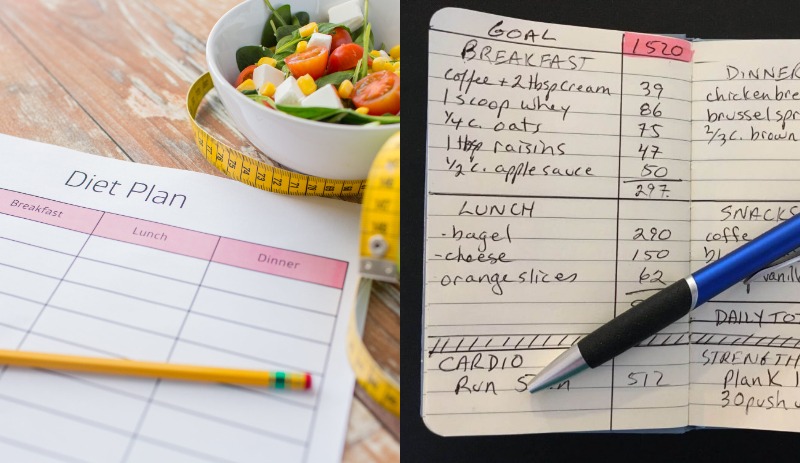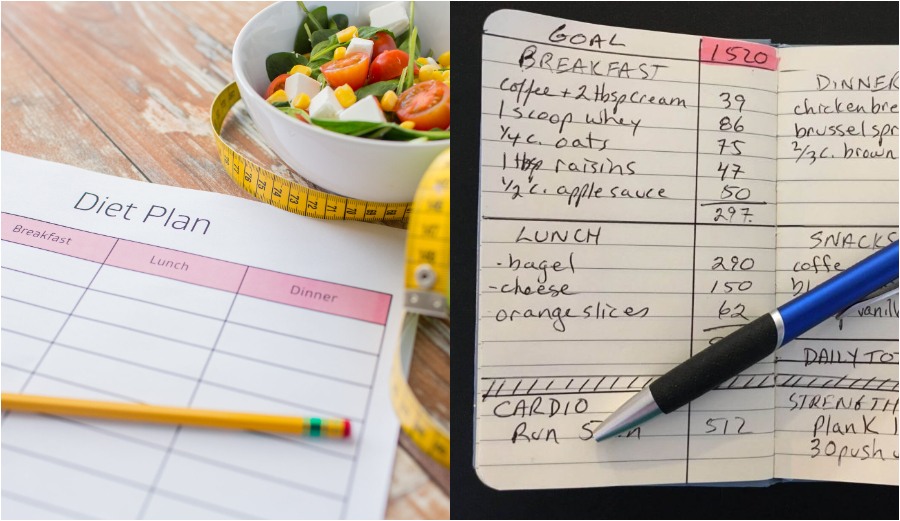Tracking today paves the path to tomorrow’s triumphs. When it comes to weight loss, maintaining a food diary is an effective tool to keep track of your progress. Every entry made in your food diary becomes a stepping stone toward achieving your weight loss aspirations. A food diary isn’t just a record of daily food intake, it can keep track of your physical activity, emotions, and eating habits as well. When used in the right way, it can guide you towards your weight loss goals. In fact, maintaining and reviewing a food diary at the end of every week, would offer insights into what you are eating, how much you are eating, and help keep a track of where all the extra calories are coming from. It would help you to eliminate foods that are hampering weight loss and make space for foods that would actually help you lose weight. In fact, in a study, individuals who practiced self monitoring of food managed to reduce food intake and that led to subsequent weight loss. In this article, we list out more reasons why maintaining a food diary would help you lose weight.


5 Reasons To Begin Your Weight Loss Journey with a Food Diary:
1. Keeping a journal of what goes into your plate would help you track and cut out sources of extra calories from your daily diet.
2. Tracking calories will help create a calorie deficit which would eventually help you lose weight.

3. A food diary would help you identify and eliminate high sugar and calorie-dense food items – which can be considered main reasons behind weight gain.
4. Helps to self monitor progress, both dietary intake and physical activity. It would also keep track of your eating habits and dietary patterns, emotional triggers that lead to overeating or binge eating. Also read: “8 Minor Steps To Begin Your Weight Loss Journey Right Now.”
5. A food diary would provide insight to your nutritionist and weight loss program team to evaluate which foods and techniques are working and what changes in eating pattern and lifestyle modifications would be needed to accelerate weight loss.
Prompts For Your Food Diary: Essential Details to Capture in Your Food Diary Entries:
1. Write down every bite and nibble you took through the day. Apart from main meals, do not forget to mention snacks. Portion sizes need to be jotted down too; how much did you eat and did you go for a second serving?
2. Mention timings also. Rather than eating meals at erratic timings, stick to fixed meal and snack timings.
3. Jot down measurements of main ingredients used. Measure out ingredients before cooking and include all the measurements in the diary. If you were unable to lose weight in a particular week, it would be pretty easy to downsize portions by reviewing the measurements of that week.
4. If you ate outside of your diet, jot down your feelings on why you did so, whether you gave into cravings. Were you tired, bored, or just ate food to beat stress or to calm down jittery nerves.
5. Did you eat because you were really hungry?
6. Did you crave for any specific food that day? Did you gave into that craving or did you fight the temptation?
7. Did you cheat on your diet? Did you order food from outside, did you overeat?
8. Do not forget to mention whether you were physically active or not, number of steps taken, workout done, and for many minutes did you walk that day.
9. Mention your water intake, did you have at least 8 glasses of water?
10. Did you sleep well the previous night? Your sleep routine needs to be mentioned as well because sleep deprivation has a major impact on appetite and cravings. Lack of sleep can increase your appetite and cravings for calorie-dense food the next day. Also read: “8 Surprising Sources of Empty Calories you May Be Overlooking.”
6 Tips To Get Maximum out of a Food Diary:
1. Write down every single detail, do not feel embarrassed of what your dietician would think. Every bite and every nibble should be noted down for better results.
2. Enter the details as soon as you consume the food – don’t wait till the night because you might miss out a few details.
3. Write down protein, carb, healthy fat intake. Did you get vitamins and minerals through your diet? What where the sources of these macronutrients and micronutrients.
4. Did you meet the recommended dietary vegetables and fruit intake for that day?
5. Go through the journal weekly and keep track of how many times you indulged in junk food and make a resolve to eliminate that food item the next week.
6. Do not forget to review the food diary at the end of the week after standing on the weighing scale. If you lost weight, find out what worked. If you gained weight, find out where you actually went wrong.
In conclusion, the simple act of maintaining a food diary is such a powerful strategy on your weight loss journey. It’s not just important to maintain a food diary, it’s also important to review this diary at the end of every week, and get crucial insights into your eating habits and calorie intake. If maintained correctly, this food diary can act as a roadmap to achieve your weight loss goals. And to lose all the extra pounds and lose inches from the waist, check out our diet plans on the Rati Beauty diet. Subscribe to the Rati Beauty diet to access our weight loss diet plans.
8 Minor Steps To Begin Your Weight Loss Journey Right Now
8 Surprising Sources of Empty Calories you May Be Overlooking





